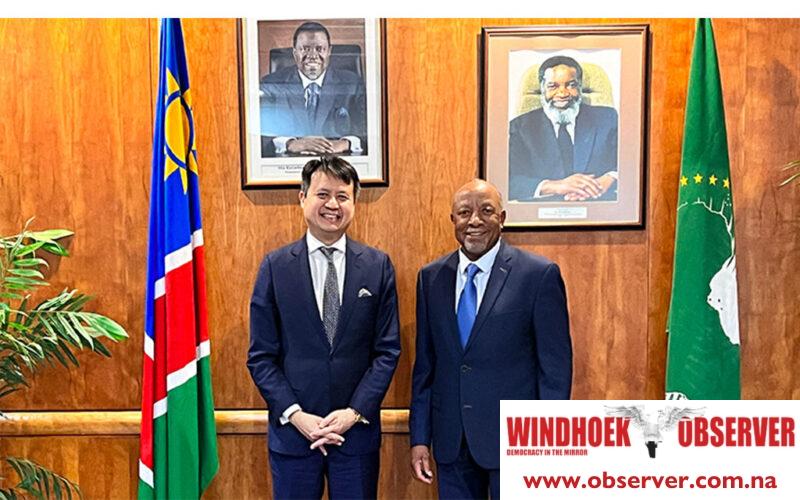Chamwe Kaira
World Intellectual Property Organization (WIPO), Director General Daren Tang has pledged the Organization’s continued support for the strengthening of Namibia’s innovation ecosystem.
Tang who visited Namibia this week disclosed that Namibian officials expressed their commitment to strengthening the innovation ecosystem with intellectual property (IP) as a core part of policies to promote growth and development.
Tang underlined WIPO’s vision of intellectual property as a powerful catalyst for jobs, investments, business growth and economic and social development in all parts of the world. He said WIPO is building a more inclusive IP ecosystem, focusing on startups and small and medium-sized enterprises (SMEs), women, youth and Indigenous peoples and local communities – among those who have been under-represented in the IP system in the past.
Vice President Nangolo Mbumba welcomed WIPO’s efforts to build a more inclusive and balanced IP system that takes into account the needs and expectations of developing countries.
Tang pledged WIPO’s support for helping innovators and creators at the grassroots to better exploit the IP system and move their ideas to the market. He said IP must become part of the journey of entrepreneurs in developing their business.
WIPO will continue to work closely with the Business and Intellectual Property Authority (BIPA) to deliver high impact projects and other capacity building initiatives in Namibia. The government has said there is a strong need for initiatives to raise awareness of IP and develop skills in relation to IP management.
Obeth Kandjoze, Director-General of the National Planning Commission (NPC) said IP is key to promoting better living standards and it is critical for businesses in Namibia to use IP effectively. He also underlined the need for awareness raising activities, including among policy makers. The Director General said WIPO has customized training programmes and can also tailor-make courses.
WIPO is the global forum for intellectual property (IP) services, policy, information and cooperation. It is a self-funding agency of the United Nations, with 193 member states.
Its mission is to lead the development of a balanced and effective international IP system that enables innovation and creativity for the benefit of all.




